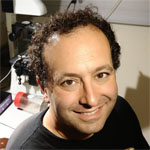As willing as I generally am to criticize Science, I was going to give them a pass on the Hawng Woo Suk stem-cell fraud thing, even though his recent Science paper (and possible several others) is looking like the most significant scientific fraud since Piltdown. I’m sure that a post-mortem of the peer review of this paper, and any other of Dr. Hwang’s papers that turn out to be fraudulent, will identify places where more diligent peer-review or better editorial oversight could have caught this fraud earlier. However, elaborate frauds like this are difficult to catch, and it would be wrong to blame Science for these events.
But then I picked up this morning’s New York Times and saw the following section in – Under a Microscope: High-Profile Cases Bring New Scrutiny to Science’s Superstars:
Dr. Donald Kennedy, editor of Science – which is in the process of retracting Dr. Hwang’s paper – said scientists had become far less collegial in the past decade, pushing hard to be first in their field. “There are enormous pressures to be extremely productive and at the top of the heap,” he said.
Fame, scientific prizes and, often, lucrative patents await those who finish first, Dr. Kennedy said, but there is little acclaim for those finishing fifth or sixth. “Scientists want to be recognized like everyone else,” he said.
I love the way he innocently blames this on “scientists”, when Science and Nature are the prime culprits! It is these two powerful journals who have created this “winner take all” system with their voracious pursuit of sexy stories, willingness to rush hot papers to press, and refusal to publish the work of careful, cautious scientists who finish second (let alone fifth or sixth). With such a system, is it all that surprising that some people respond by cutting corners, or in some cases simply cheating?
What IS remarkable is that despite these incentives, the overwhelming majority of scientists are honest and would rather be right than win. Too bad Science doesn’t do a better job of rewarding them.
 I'm a biologist at UC Berkeley and an Investigator of the Howard Hughes Medical Institute. I work primarily on flies, and my research encompases evolution, development, genetics, genomics, chemical ecology and behavior. I am a strong proponent of open science, and a co-founder of the
I'm a biologist at UC Berkeley and an Investigator of the Howard Hughes Medical Institute. I work primarily on flies, and my research encompases evolution, development, genetics, genomics, chemical ecology and behavior. I am a strong proponent of open science, and a co-founder of the 